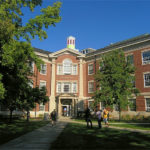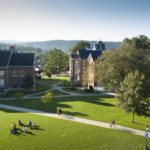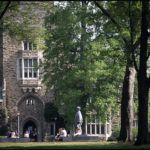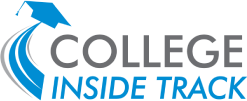College Fair Alert! Colleges That Change Lives
By CIT Consultant Susan Whalen
College Fairs & Information Sessions

CTCL College Bard College
Colleges That Change Lives is several things at once: A bestselling college admissions book by Lauren Pope, now in its fourth edition; a related nonprofit 501C organization that provides research-driven data on student satisfaction and the college experience; and, at its heart, a consortium of approximately forty great colleges, worthy of strong consideration for students who might want to consider smaller colleges as part of their search.

CTCL College, Willamette University
What do these colleges have in common? Pope writes: “[These colleges] have one primary mission: educate the undergraduate. Each appeals to a slightly different type of teenager, but they all share a mission to raise students’ trajectories and develop thinkers, leaders, and moral citizens. The little-known truth is that these colleges have been on the cutting edge of higher education for decades. Many of them have outperformed most of the ranking sweethearts in the percentages of graduates who become America’s scientists and scholars.”
Put another way: Colleges That Change Lives colleges offer a strong personalized, student-centered undergraduate experience. They also tend to deliver on their promise of especially strong first-year experiences, direct engagement with professors, experiential learning, personalized study abroad opportunities, strong educational outcomes and return on investment, and community.

CTCL College, Earlham College
And, they are liberal arts colleges. But apart from that, much distinguishes the colleges in the consortium. Spread across America, the colleges offer unique experiences and curricula. They vary also in terms of cost of attendance (happily, there are not only hidden gems to discover, but true bargains to be had here as well!)
Know of an equestrian embarking on the college search? Tiny CTCL Quaker champ Earlham College offers the only student-run barn and collegiate horse program in the country, an equestrian management minor, and a hunt seat equestrian team, along with a state of the art stall-barn where students can board horses if they wish. Nearly a quarter of the students are international. The heart of the undergraduate experience is Earlham’s EPIC Program, which offers at least one fully funded internship or faculty-guided research experience, on or off campus in one of the college’s over two dozen college-managed travel abroad programs.

Office Building at CTCL College, Reed College
Superb outcomes include students who are regularly awardees of key foundational awards, including Lilly, Watson, and Guggenheim; and, Earlham is a leader for percentage of graduates who go on to earn research doctorates, including the Ph.D. A final charming detail: instead of Greek life, Earlham offers twenty ‘friendship houses”: themed residences where students form their own communities, rooted in shared interests.

CTCL College, Juniata College
Reed College, a very highly selective CTCL college in Portland, Oregon, has the reputation as the most intellectual college in America. I recall picking up the phone many years ago to hear the gasping of a former student, just starting as a classics major at Reed, whose professor could (and just did!) sing the proem to The Iliad, who could chant whole books of The Odyssey from heart, and who would be leading the now-famous required Humanities 110 class students in a topography study in Rome. So exciting!
Fast facts: The National Science Foundation’s Survey of Earned Doctorates reveals that Reed is second in the nation in the percentage of graduates who earn PhDs in the life sciences, third in the nation in the percentage of graduates who earn PhDs in the arts and humanities, and fourth in the nation across all disciplines. Reed’s lush 116-acre campus is a study in grassy elegance centered by Reed Canyon, a 30 acre watershed. Instead of term grades, Reed evaluates performance using highly granular written evaluations from professors. Finally, Reed’s “neighborhood” housing model for freshmen includes houses with balconies, fireplaces, and specific programs to encourage first-year happiness, like social and cultural events and excursions.

Palmer Hall at CTCL College, Rhodes College
We will end with a quote from the Director of CTCL, who offers an astute observation about the college search process: “The college search is first and foremost about students. It should be a student-centered process. As a culture, we tend to quickly gravitate towards that which we know, whether it’s clothing, sneakers, cars, or education. The college search should be a personal and introspective process for each student, allowing him/her the chance to think about the type of next step that makes the most sense. Busy students and parents often want to jump directly to “making a list.”
For the 25th year, CTCL is offering a national series of information sessions and college fairs for families. These fairs are superb, so worth your time if a liberal arts college might be part of your college search. Find a fair near you and sign up!
